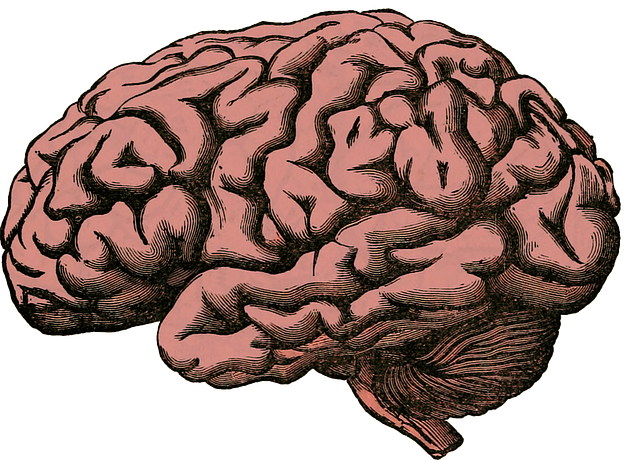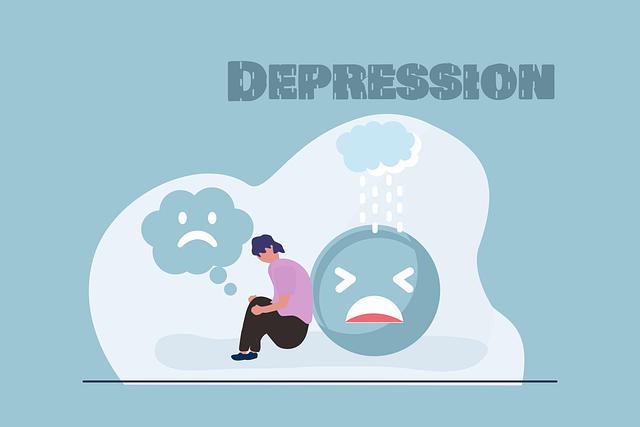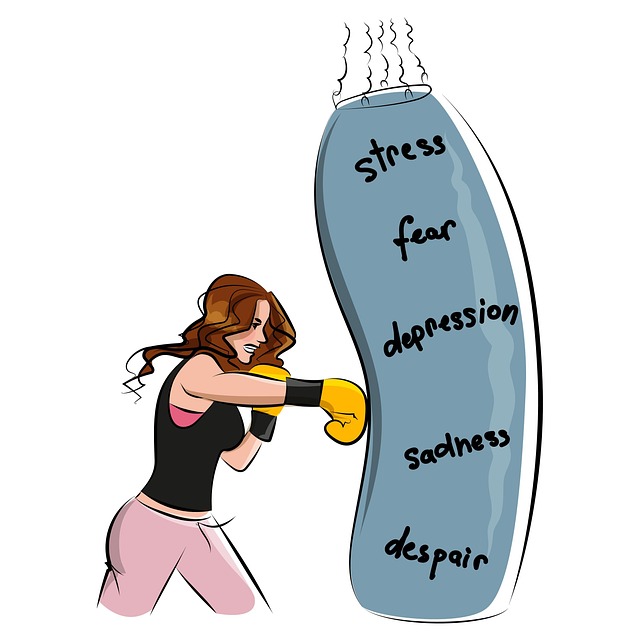Highlands Ranch Anxiety Therapy focuses on empowering individuals to manage anxiety and stress through effective coping skills. This involves identifying personal triggers, implementing evidence-based strategies like CBT and mindfulness practices, and fostering a supportive community. By enhancing self-awareness, teaching relaxation techniques, and offering tailored support, the therapy helps reduce anxiety symptoms and promotes mental wellness. Their holistic approach includes public awareness campaigns and self-care initiatives, contributing to a healthier, more resilient community.
Coping skills development is a vital component of mental wellness, enabling individuals to navigate life’s challenges with resilience. In this comprehensive guide, we explore strategies essential for managing anxiety and stress, tailored to those seeking support in Highlands Ranch Anxiety Therapy. From understanding the significance of coping mechanisms to identifying personal stressors, we delve into effective practices like mindfulness, relaxation techniques, and building resilience. By mastering these tools, individuals can enhance their ability to thrive despite life’s ups and downs.
- Understanding Coping Skills and Their Importance
- Identifying Personal Stressors and Triggers
- Effective Strategies for Managing Anxiety and Stress
- Incorporating Mindfulness and Relaxation Techniques
- Building Resilience Through Practice and Support
Understanding Coping Skills and Their Importance

Coping skills are a set of strategies individuals use to navigate and manage their emotional responses to stressful or challenging situations. They play a pivotal role in mental health, especially for those seeking Highlands Ranch anxiety therapy. Understanding these skills is essential as they empower people to cope with various difficulties, from everyday stressors to complex traumas. By developing effective coping mechanisms, individuals can enhance their resilience and overall well-being.
In the context of trauma support services, communication strategies prove invaluable. Public awareness campaigns development around coping skills can foster a supportive environment where people feel equipped to handle anxiety and stress. These strategies range from simple relaxation techniques to complex problem-solving approaches, allowing individuals to adapt and grow in the face of adversity.
Identifying Personal Stressors and Triggers

In the journey towards developing effective coping skills, the first step is to identify personal stressors and triggers that contribute to anxiety or other mental health challenges. This process begins with introspection—a thorough examination of one’s thoughts, feelings, and behaviors. Individuals in Highlands Ranch Anxiety Therapy are encouraged to explore their daily experiences, relationships, work demands, or any specific situations that evoke strong emotional responses. By becoming more self-aware through self-awareness exercises, individuals can pinpoint the sources of stress that may go unnoticed or unaddressed.
Understanding these personal triggers is crucial for implementing successful stress reduction methods. Once identified, these triggers can be managed and mitigated using various techniques such as cognitive restructuring, relaxation practices, or seeking support from loved ones. Additionally, mental health professionals can benefit from incorporating risk management planning into their practice, enabling them to anticipate and prepare for potential stressors in their own lives while assisting clients in navigating theirs.
Effective Strategies for Managing Anxiety and Stress

Managing anxiety and stress effectively is a cornerstone of coping skills development, and Highlands Ranch Anxiety Therapy offers evidence-based strategies to achieve this. One powerful technique involves cognitive behavioral therapy (CBT), which helps individuals identify and challenge negative thought patterns contributing to their anxiety. By replacing these thoughts with more realistic and positive ones, CBT empowers people to better cope with stressful situations. Additionally, mindfulness practices such as meditation and deep breathing exercises are integral parts of the therapy process. These techniques encourage present-moment awareness, helping clients detach from anxious thoughts and cultivate a sense of calm.
Social Skills Training is another vital component in addressing anxiety. Many individuals struggling with anxiety withdraw from social interactions, leading to further isolation and heightened symptoms. Through structured training sessions, Highlands Ranch Anxiety Therapy facilitates the development of communication skills, assertiveness, and confidence in social settings. Combined with CBT, these improved social skills can significantly reduce social anxiety. Furthermore, Mental Illness Stigma Reduction Efforts play a crucial role in fostering an environment where individuals feel comfortable seeking help without fear of judgment. Incorporating cultural sensitivity into mental healthcare practice ensures that diverse populations receive tailored support, addressing unique challenges related to anxiety and stress.
Incorporating Mindfulness and Relaxation Techniques

Incorporating mindfulness and relaxation techniques into daily routines can be a powerful tool for coping skills development, especially in managing anxiety. Highlands Ranch Anxiety Therapy emphasizes the importance of self-care practices to combat stress and promote mental wellness. Mindfulness involves being fully present and engaged with the current moment, without judgment. It helps individuals observe their thoughts and emotions without reacting impulsively, thereby reducing anxiety symptoms.
Relaxation techniques, such as deep breathing exercises and progressive muscle relaxation, are simple yet effective ways to calm the mind and body. These self-care practices can be easily integrated into daily life, making them valuable tools for anyone seeking to enhance their mental wellness. Regular engagement in mindfulness and relaxation not only benefits individuals struggling with anxiety but also contributes to the overall success of Public Awareness Campaigns Development and Mental Wellness Podcast Series Production initiatives by fostering a culture of resilience and emotional well-being.
Building Resilience Through Practice and Support

Building resilience is a crucial aspect of coping skill development, and it can be cultivated through consistent practice and supportive environments. At Highlands Ranch Anxiety Therapy, our approach emphasizes the importance of empowering individuals to navigate life’s challenges with greater ease. We understand that developing resilience isn’t an overnight process; it requires dedication and the right tools.
Through our community outreach program implementation, we connect with individuals who may benefit from learning self-care practices tailored to their unique needs. By fostering a supportive network, we encourage open dialogue about mental health concerns and promote burnout prevention strategies for healthcare providers, ensuring everyone involved feels heard and understood. This holistic approach enables individuals to build resilience, making them better equipped to handle stress, anxiety, and other challenges they may face in daily life.
Coping skills development is a powerful tool for navigating life’s challenges, especially in managing anxiety and stress. By understanding personal stressors, employing effective strategies like mindfulness and relaxation, and building resilience through practice and support, individuals can enhance their mental well-being. Incorporating these techniques, as suggested by Highlands Ranch Anxiety Therapy experts, allows one to transform their approach to stress, fostering a more balanced and resilient mindset. Through consistent application, these skills can significantly improve overall quality of life.











